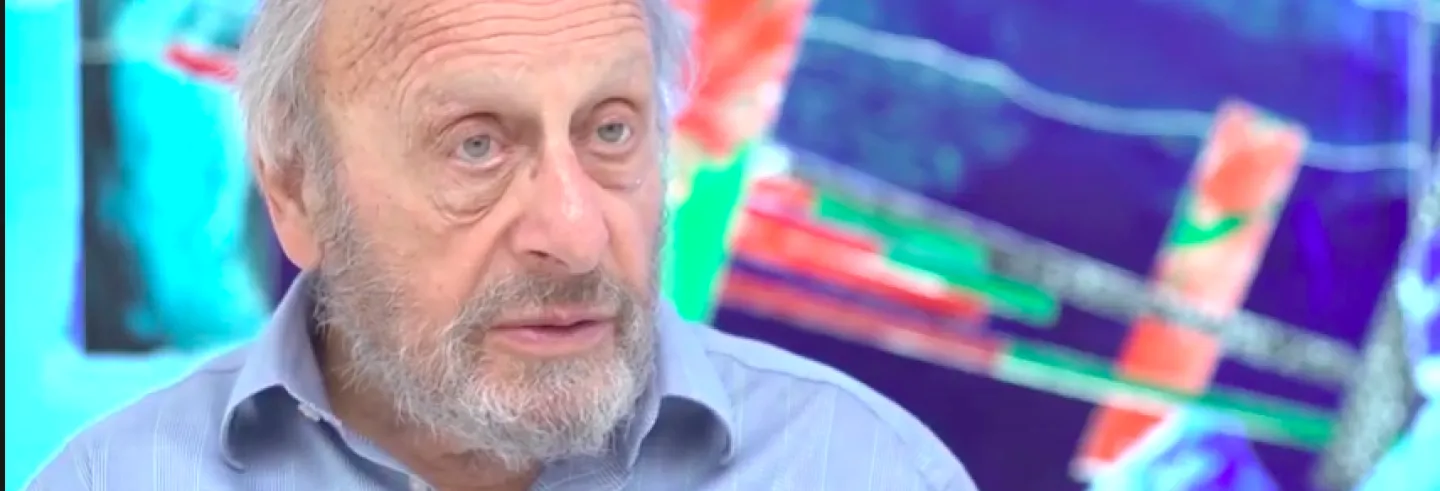
Geoffrey (‘Geoff’) Colin Harcourt: 27 June 1931 – 6 December 2021
Issues
Commentator name
K. Vela Velupillai

Our apologies for intruding. Please spare a couple of minutes.
The India Forum is a reader-supported publication. We are independent because your donations help us meet our costs.
We need your support to keep it going, and grow into a publication you will always want to read. Please donate to the Vichar Trust.
If you wish to make a one-time donation of Rs 500, Rs 2500, Rs 5000, Rs 10,000 or any other amount, please click here: DONATE
You can now also use the QR code in the link above to make a quick one-time donation via UPI.
If you wish to make a monthly or annual donation of Rs 500 or more, please click here: DONATE
Donations enjoy tax exemption under Section 80G of the Income Tax Act.


K. Vela Velupillai writes:
The economist ‘Geoff’ Harcourt, who died on 6 December 2021, was indefatigable in his advocacy of post-Keynesian economics (PKE), based particularly on the works of Michał Kalecki and Joan Robinson, but also on the various works of Richard Kahn, Nicholas Kaldor, Luigi Pasinetti, Richard Goodwin – and, of course, John Maynard Keynes, especially the General Theory; they were all, more-or-less, Cambridge economists, (apart from Kalecki). In the book edited by Sinha and Thomas (2019) Harcourt was candid in saying that (p.99; italics added):
…. I took a post-Keynesian approach long before I knew what post-Keynesian economics was.
If one is reminded of Monsieur Jourdain and prose in Molière's play Le Bourgeois gentilhomme, then it is natural!
Geoff refers to post-Keynesian economics, not macroeconomics, microeconomics, mesoeconomics, picoeconomics or whatever. It was because he believed, and acted on, various types of economics – and considered them from an enlightened and humane policy point of view, politically, behaviourally and sociologically.
Geoff’s post-Keynesian economics is also based on his reading and understanding of Ricardo, Marx and Marshall – so, it is an amalgam of classical and neoclassical economics. It was also influenced by – but not to the point of emulation – Sraffa.
In the two best known articles – according to him – of his, he develops, both micro and macro economically, many of the ideas that went into his version of PKE: the 1969 survey of debates in capital controversies in the Journal of Economic Literature and the 1965, Oxford Economic Papers piece on The Accountant in a Golden Age.
He articulated ideas from all these worthies and forged a particular Harcourt-version of PKE. From this background and vantage point, he constructed his over 360 articles (in superb journals), 17 books (by reputable publishers), 57 explicit collaborators (from diverse countries), the works and theses he supervised, encouraged and inspired in countless students from all over the world, over a period of seven decades, as a student, researcher, teacher, visitor, fellow, reader and professor (subsequently, as emeritus) and numerous lectures at various universities, colleges, institutes and (professional) associations.
He is the recipient of numerous honorary degrees, awards and prizes – all of them can be seen and read in his CV, available freely, on the internet and on social media of many sorts. Also, there are many appreciative articles about Geoff – and a number of journals commemorated his contributions with special issues, and so did many chapters in respectable books by well-known publishers. Geoff Harcourt may well be one of the few who had many volumes of Festschrifts published honouring him, but they were also reviewed in respectable journals by well-known scholars.
As he articulated in Harcourt (1995), Geoff Harcourt considered himself an Australian patriot and a Cambridge economist; but he, like many greats from that seat of learning, became ‘out-of-date’ with the way things have turned out in modern life.
Geoff Harcourt was a scholar of impeccable integrity, unrivalled dedication, admirable courage, humane kindness and generosity – especially towards the underprivileged – and his work, both in the academic world and in the ‘practical’ world of the ‘here and now,’ was tempered by wholehearted commitment. He had a mastery of economics – of micro and macro – that was impressive because it was tinged with political awareness. That may have been why he was considered a parent of PKE.
He is survived by his wife of over 60 years, Joan – and their four children, Wendy, Robert, Tim and Rebecca and two grandchildren, Caterina and Emma Claire.
(Emeritus Professor Kumaraswamy (Vela) Velupillai is a retired academic economist, living in Stockholm, Sweden.)
References
Harcourt, G. C. (1965), “The Accountant in a Golden Age”, Oxford Economic Papers, 17 (1), pp. 66-80.
Harcourt, G. C. (1969), “Some Cambridge Controversies in the Theory of Capital”, Journal of Economic Literature, 7(2): 369-405.
Harcourt, G. C. (1995), “Recollections and Reflections of an Australian Patriot and a Cambridge Economist”, Banca Nazionale del Lavoro Quarterly Review, 48(194): 225-54.
Sinha, Ajit and Alex M. Thomas (2019), Pluralistic Economics and Its History, Routledge, London.
(Photo credit: Screenshot from Youtube)